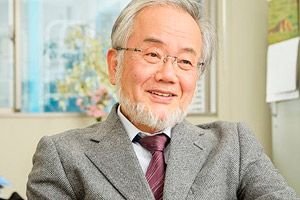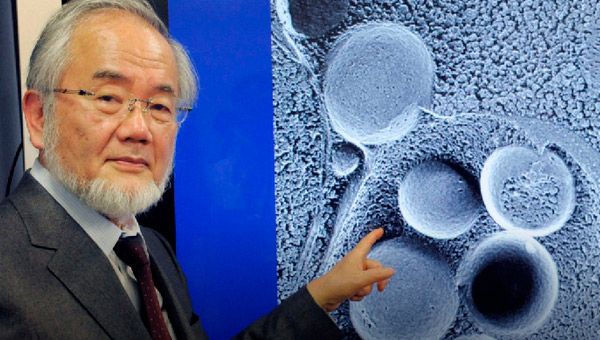
All iLive content is medically reviewed or fact checked to ensure as much factual accuracy as possible.
We have strict sourcing guidelines and only link to reputable media sites, academic research institutions and, whenever possible, medically peer reviewed studies. Note that the numbers in parentheses ([1], [2], etc.) are clickable links to these studies.
If you feel that any of our content is inaccurate, out-of-date, or otherwise questionable, please select it and press Ctrl + Enter.
The Nobel Prize is given for new knowledge, not for discoveries
Last reviewed: 02.07.2025

This year, it was decided to award the Nobel Prize not for achievements in the field of diagnostics, treatment, not for the discovery of new drugs, viruses, bacteria, etc., but for obtaining new knowledge.
The award was given to molecular biologist Yoshinori Ohsumi (Japan), who made the discovery of the mechanisms of autophagy (cell death). It is worth noting that several years ago, a Nobel Prize was awarded for similar research to 3 scientists who made a discovery in the field of genetic research and the mechanisms of apoptosis.
The current Nobel laureate is 71 years old and has spent many years researching the gradual deterioration of proteins due to autophagy. Professor Ohsumi's work has been recognized with a variety of prestigious awards, including the International Prize for Biology, awarded in the name of the Emperor of Japan.
Although Professor Ohsumi did not create a cure for eternal youth, he was able to explain exactly how death occurs, and this, in turn, will provide scientists with new opportunities to slow down the aging process of the body.
During the life cycle of a cell, certain processes occur, including the accumulation of irreversible damage. In case of severe damage, the process of autophagy is launched – the destruction of abnormal proteins. The processes of cell self-destruction were described back in the 1960s, but until the early 90s, scientists could not find out all the details of this process. It was during these years that Professor Ohsumi began to conduct experiments with baker's yeast, as a result of which he identified the genes necessary to launch the process of cell destruction. His further work was also related to autophagy – using yeast as an example, Professor Ohsumi showed that similar processes occur in human cells.
Ohsumi's discovery changed our understanding of how cells recycle their own contents and revealed the importance of autophagy in a variety of physiological processes.
For the human body, this process is very important - autophagy begins to work at the beginning of embryonic development and subsequently provides fuel and protein to cellular blocks, which helps the body adapt to hunger and stress. Also, when infected with viruses or bacteria, autophagy gives a signal to eliminate the infected cells, in addition, this process is extremely important for counteracting the aging processes that begin in our body at a certain point.

Aging, according to a number of scientists, begins if the autophagy processes in the body are disrupted; a failure can also provoke diseases of the nervous system and cancer, cause the development of Parkinson's disease, diabetes and other age-related diseases, and mutations in genes lead to genetic diseases.
Currently, various scientists are working on creating new drugs that would increase or restore autophagy processes when needed – and this would not be possible without Professor Ohsumi’s many years of research.
